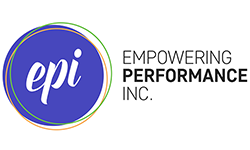3 Ways to Better Manage Your Time
Sweet summer is slipping away and, as usual, it’s hard to say goodbye. There's still plenty of beautiful weather left, but I'm beginning to feel a mental shift toward the awareness of shortening days. As I try to squeeze in more outside activities between my work and family responsibilities, I’m feeling frazzled. And this sense of being behind and out of control has led me to realize I need to be more disciplined; I need to improve my planning, reevaluate my priorities, and better manage my time.
Here are three tips that are helping me plan more effectively. In addition, I’ve included some book recommendations below!
1. Don’t Let Email Dictate Your Day.
Email can be a blessing… or a curse. Especially if it becomes your sole to-do list and begins to dictate your day. And it’s certainly easy to allow that to happen when your inbox is constantly open, dinging, and staring you in the face. This reactive inclination can take over your entire day.
According to one report, employees spend 28% of their office time responding, reading, and writing email. And the average person checks their email around 70 times (but up to 350 times!) a day. This need to constantly check our email leaves us feeling out of control, stressed, overwhelmed, and dissatisfied at work.
What if you tried something different? Block or schedule time specifically for checking email and be more deliberate in how and when you respond. Instead of reading an email and “coming back to it,” try to handle each email only once and refresh yourself on the 4 Ds of Email Decision-Making:
Delete It
Do It (if it takes less than two minutes)
Delegate It
Defer It
2. Eat the Frog.
“If it’s your job to eat a frog, it’s best to do it first thing in the morning. And if it’s your job to eat two frogs, it’s best to eat the biggest one first.”
The “frog,” especially the biggest one, is not only the task you’re likely avoiding, but it’s potentially the task that could have the greatest impact on your day, your current project, or your life. Therefore, identify one important task for the day and complete it first. This will create a domino effect of productivity.
Because we’re often pulled in a million directions and become overwhelmed by our daily tasks, this method of “eating the frog” promotes a deep-work habit and sets you up for a win.
3. Have a Shutdown Routine.
Did you know 70% of Americans check work email after 6 p.m. and 66% admit to checking their work email at least “sometimes” while on vacation?
Many of us don’t fully unplug from work at all on a daily basis, let alone long enough to gain the restorative benefits of time off! Create a shutdown routine to tell your brain you’re done for the day and then make a point to deliberately unplug from work until the next morning.
Cal Newport encourages following these tips in a shutdown ritual:
Keep to-do lists current; review and reprioritize as needed.
Review your calendar for the next two weeks.
Write down a plan for the next day.
Close everything on your computer.
State a “magic” phrase that signals a transition to post-work life (Cal likes to state, “shutdown, complete!”).
By creating a shutdown routine, you’ll have a defined ending and can give your subconscious mind time to work through problems and develop new ideas. It’s a win-win because you’ll get the most out of your hard-earned time off and set yourself up for a productive tomorrow!
Book Recommendations for Improving Planning and Focus:
While there are many great books about focus and planning, these are some of my favorites. Even though each of the books below has a different viewpoint, all of them have taught me something valuable about planning and the importance of focus.
Free to Focus: A Total Productivity System to Achieve More by Doing Less | Michael Hyatt
A World Without Email | Cal Newport
Deep Work: Rules for Focused Success in a Distracted World | Cal Newport
High Performance Habits: How Extraordinary People Become That Way | Brendon Burchard
Indistractable: How to Control Your Attention and Choose Your Life | Nir Eyal

